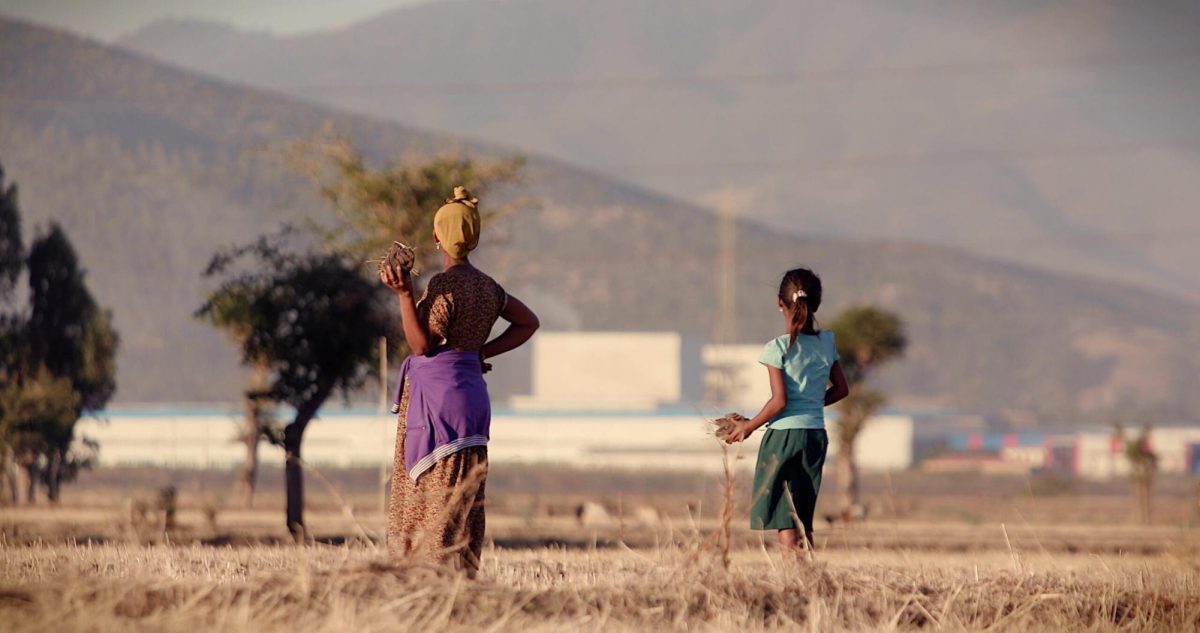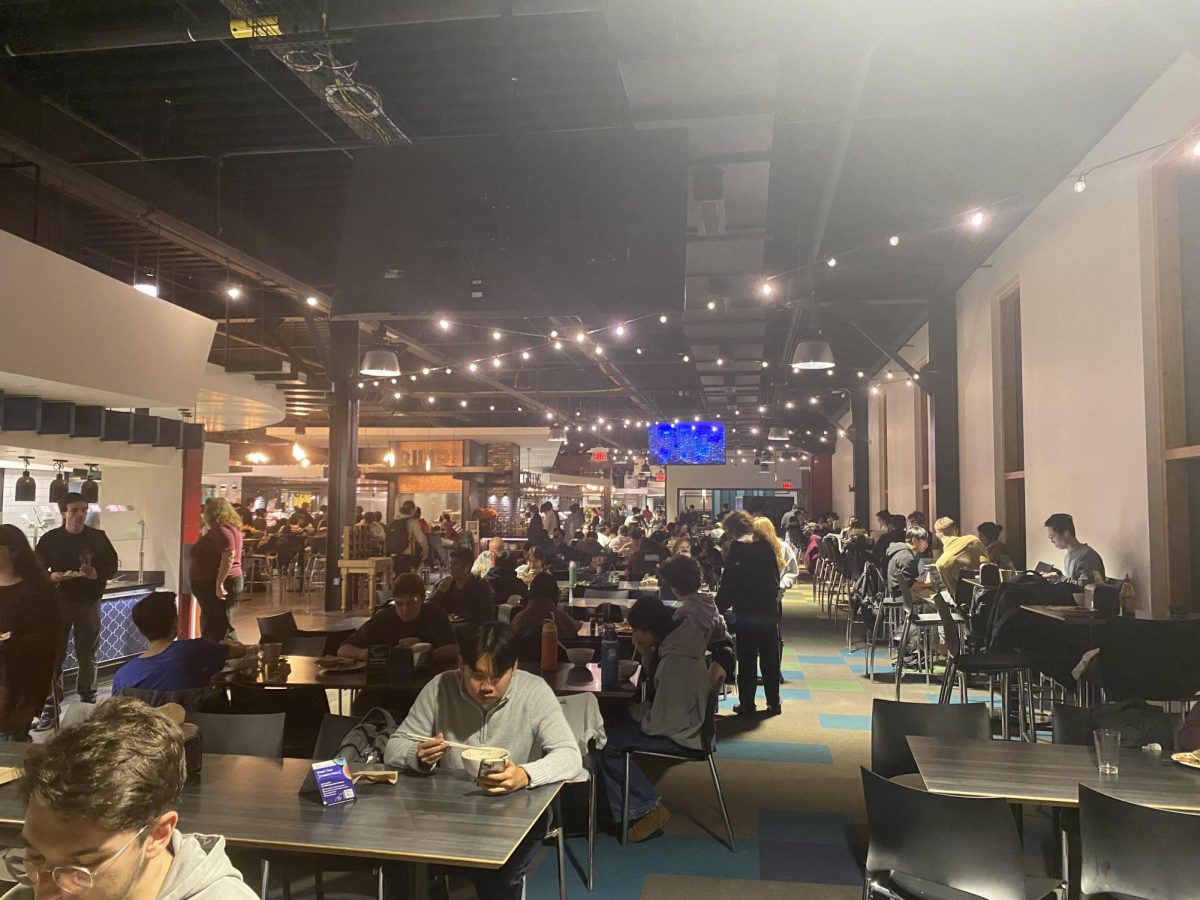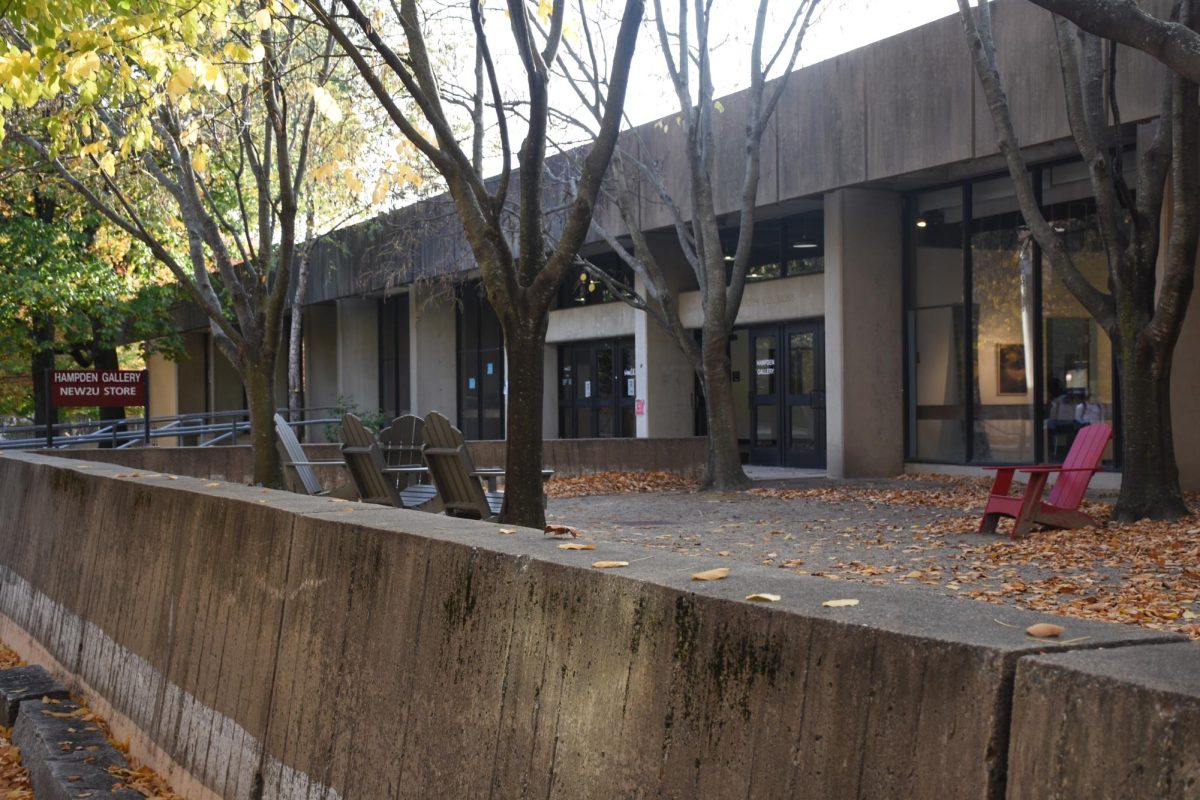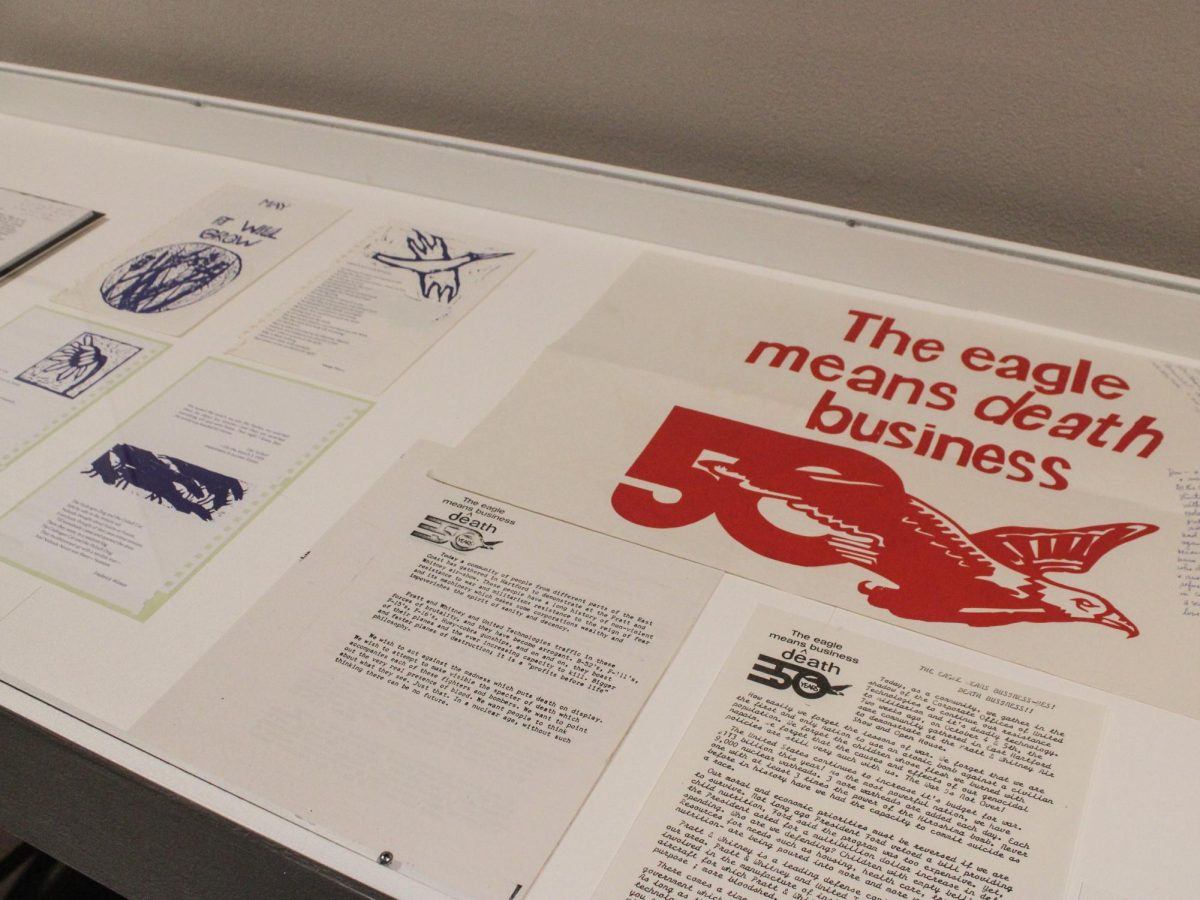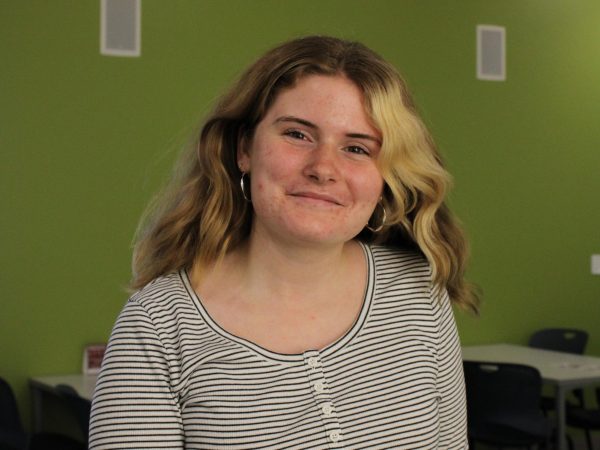UMass welcomed co-directors Xinyan Yu and Max Duncan for a public screening of their documentary, “Made in Ethiopia,” on Oct. 3. The documentary follows three women striving for success as a Chinese factory park expands into rural Ethiopia.
The screening, organized by Associate Professor Seyram Avle and the communications department, drew a crowd of over 30 viewers to the Integrative Learning Center. The film ran for an hour and a half, with a half-hour Q&A session at the end.
According to Duncan, the two filmmakers had originally used the name “Made in Ethiopia” as a stand-in until they could find a more “creative” name, but it eventually stuck. The name is also a homage to “Made in China,” Duncan said.
The documentary primarily follows Motto, the deputy director of Eastern Industrial Park, Beti, a factory worker at EIP, and Workinesh, who lives in the village of Dukem.
In its second phase of expansion, the EIP started encroaching onto Dukem’s lands, displacing many villagers. The villagers were promised land to resettle, as well as compensation checks, but a significant portion of the land promised to Dukem’s locals was never given to them. This left locals without land for farming, and it threatened the grounds they used for spiritual traditions and celebrations.
The film documents Motto’s efforts with Dukem’s local government to expand the factory park. It simultaneously shows Beti’s occupational shift from a factory worker to a manager, and Workinesh’s struggle with her past and the future she dreams of for her daughter.
With the rise in rebels around the industrial park, tensions worsened between the Chinese workers and the Ethiopian locals, who both made sacrifices to retain this deal. Despite the utopian implication of new jobs and technology, Dukem still lacked hospitals and schools.
The documentary concluded with the announcement that the EIP plans to continue phase two.
During the Q&A portion of the screening, Duncan and Yu shared behind-the-scenes information, like how the pair met in China while Duncan was on a trip, and that the documentary was a non-profit project. Yu answered questions about gender roles and discrimination, specifically regarding the hierarchy of the EIP.
Most factory workers depicted in the documentary are Ethiopian women, and most supervisors or managers are Chinese and Ethiopian men. “A majority of the people who have made it out of the system are men,” Yu said.
In the relationship between Chinese and Ethiopian workers, there is “racism against each other,” Yu said.
Yu shared a personal story about how during the filming of “Made in Ethiopia,” her driver refused to eat Chinese food because of his own preconceived notions about Chinese culture.
Duncan and You faced several challenges while filming the documentary. COVID-19 and the civil war in Northern Tigray were both ongoing humanitarian crises during the filming process.
Many of the Dukem villagers were also originally skeptical of the filmmakers’ intentions. To earn their trust, the crew lived among the locals for several weeks. In the end, the presence of cameras added a layer of credibility to the filmmakers, the co-directors said.
This was not the first showing of this documentary. “Made in Ethiopia” has had dozens of screenings, many of which at film festivals. Duncan and Yu announced that screenings of the documentary have now ended. The last two screenings were on October fifth and sixth in New York City.

